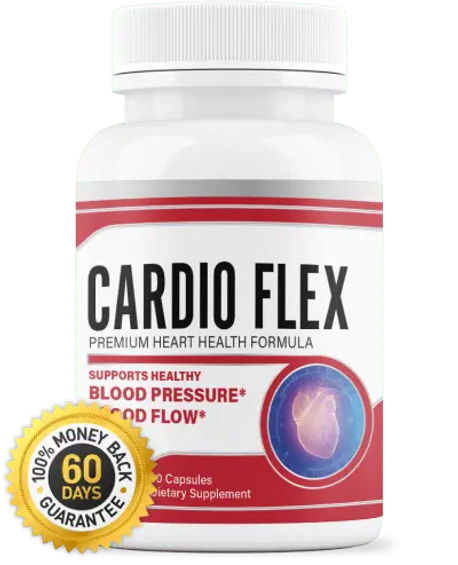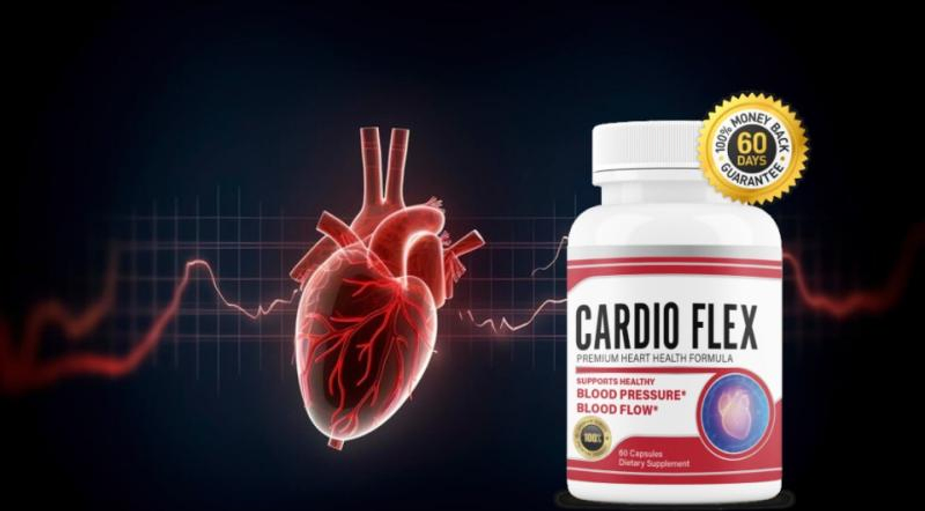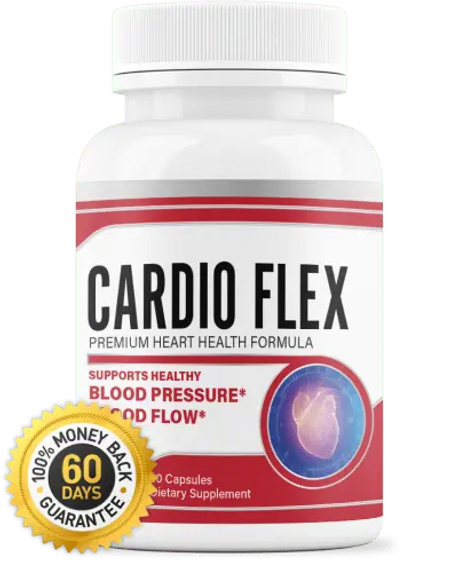A healthy heart is the key to a healthy life. The circulatory system is responsible for transporting oxygen and nutrients throughout the body, and when it's not functioning properly, it can lead to serious health problems. Fortunately, there are a number of vitamins that can help keep your circulatory system strong and healthy. These vitamins work in different ways, from reducing inflammation and improving blood flow to lowering blood pressure and increasing energy levels. In this post, we will explore the top vitamins for a strong circulatory system, why they are important, and how to incorporate them into your diet. By making a few simple dietary changes, you can give your heart the support it needs to keep you healthy and strong for years to come.

1. Understanding the importance of heart health
Understanding the importance of heart health is crucial for maintaining a strong circulatory system and overall well-being. Our heart is a remarkable organ that tirelessly pumps oxygen-rich blood to every part of our body, ensuring the delivery of essential nutrients and removal of waste products. Without a healthy heart, our entire body suffers.
Heart disease is a leading cause of death worldwide, making it imperative to prioritize and take proactive steps to maintain a healthy heart. By understanding the significance of heart health, we can make informed decisions to support and protect this vital organ.
A strong circulatory system not only promotes optimal physical performance but also enhances mental clarity and emotional well-being. When our heart is functioning at its best, we experience increased energy levels, improved endurance, and reduced risk of cardiovascular conditions such as high blood pressure, heart attacks, and strokes.

Furthermore, a healthy heart contributes to a longer and more fulfilling life. By prioritizing heart health, we can actively reduce the risk factors associated with heart disease, such as obesity, sedentary lifestyle, poor diet, smoking, and stress.
Taking proactive steps to understand and prioritize heart health involves educating ourselves about the importance of maintaining a healthy lifestyle. This includes regular exercise, a balanced diet rich in heart-healthy nutrients, managing stress levels, avoiding tobacco products, and seeking regular medical check-ups.
In addition to these lifestyle choices, incorporating vital vitamins into our daily routine can significantly boost heart health. These vitamins play a crucial role in maintaining a strong circulatory system, supporting healthy blood vessels, regulating blood pressure, and reducing inflammation.
In the subsequent sections, we will delve into the top vitamins that are essential for heart health, exploring their benefits, sources, and recommended daily intake. By understanding the significance of these vitamins and incorporating them into our daily lives, we can proactively take control of our heart health and pave the way for a strong and resilient circulatory system.
2. The role of vitamins in maintaining a strong circulatory system
Vitamins play a crucial role in maintaining a strong circulatory system, which is vital for overall heart health. These essential nutrients act as powerful allies, supporting various aspects of cardiovascular function and promoting optimal blood flow.

One of the key vitamins for heart health is vitamin D. This sunshine vitamin is known for its role in promoting calcium absorption and maintaining healthy bones, but it also plays a significant role in cardiovascular health. Research has suggested that vitamin D deficiency may be linked to an increased risk of heart disease, high blood pressure, and other cardiovascular conditions. Ensuring an adequate intake of vitamin D through sunlight exposure, fortified foods, or supplements may help support a healthy circulatory system.
Another important vitamin for heart health is vitamin C. This potent antioxidant is well-known for its immune-boosting properties, but it also plays a key role in promoting healthy blood vessels. Vitamin C helps maintain the integrity of blood vessel walls, reducing the risk of damage and inflammation. Additionally, it supports the production of collagen, a protein that provides structural support to blood vessels, improving their elasticity and flexibility.
Vitamin E is another essential nutrient that contributes to heart health. As a powerful antioxidant, vitamin E helps protect the cells from oxidative stress and damage caused by free radicals. It also helps prevent the oxidation of low-density lipoprotein (LDL) cholesterol, commonly referred to as "bad" cholesterol. By reducing LDL oxidation, vitamin E may help prevent the formation of plaque in the arteries, reducing the risk of heart disease and stroke.
B vitamins, particularly vitamins B6, B9 (folate), and B12, are also crucial for maintaining a healthy circulatory system. These vitamins play a role in regulating homocysteine levels, an amino acid that, when elevated, can increase the risk of heart disease. Adequate intake of B vitamins helps keep homocysteine levels in check, promoting a healthier heart.
Incorporating foods rich in these heart-boosting vitamins into your diet or considering supplementation, under the guidance of a healthcare professional, can be beneficial for maintaining a strong circulatory system. However, it's important to note that vitamins should be viewed as part of a comprehensive approach to heart health, including a balanced diet, regular exercise, and other lifestyle factors.
3. Vitamin C: A powerful antioxidant for heart health
When it comes to maintaining a strong and healthy circulatory system, one cannot underestimate the importance of Vitamin C. This powerful antioxidant plays a crucial role in promoting heart health and supporting the overall well-being of our cardiovascular system.

Vitamin C, also known as ascorbic acid, is well-known for its immune-boosting properties. However, its benefits extend beyond just fighting off common colds. This essential nutrient plays a vital role in maintaining the health of our blood vessels, which are responsible for carrying oxygen and nutrients throughout our bodies.
One of the primary functions of Vitamin C is its ability to protect our blood vessels from damage caused by free radicals. Free radicals are unstable molecules that can cause oxidative stress, leading to inflammation and damage to the arterial walls. By neutralizing these harmful molecules, Vitamin C helps reduce the risk of developing conditions such as atherosclerosis, which is the buildup of plaque in the arteries.
Moreover, Vitamin C also aids in the production of collagen, a protein that provides structural support to our blood vessels. This protein helps keep the blood vessels strong and flexible, allowing for smooth blood flow and reducing the risk of hypertension and other cardiovascular diseases.
Adding Vitamin C-rich foods to your diet is an excellent way to boost your heart health. Citrus fruits like oranges, lemons, and grapefruits are well-known sources of this vital nutrient. Other fruits such as strawberries, kiwis, and papayas are also packed with Vitamin C. Additionally, vegetables like bell peppers, broccoli, and kale are excellent choices for incorporating this nutrient into your meals.
While getting Vitamin C from whole foods is ideal, some individuals may need to supplement their intake. This is especially true for those who have dietary restrictions or conditions that may hinder proper absorption of this vitamin. Consulting with a healthcare professional can help determine the appropriate dosage for supplementation.
In conclusion, Vitamin C is a powerhouse nutrient that plays a crucial role in maintaining a strong circulatory system and promoting heart health. By incorporating Vitamin C-rich foods into your diet or considering supplementation when necessary, you can give your heart the support it needs to function optimally and lead a heart-healthy life.
4. Vitamin D: Protecting your heart and blood vessels
Vitamin D, often referred to as the "sunshine vitamin," plays a crucial role in maintaining a healthy circulatory system. While it is commonly known for its role in bone health, recent research has shed light on its impact on heart health as well.
One of the main benefits of vitamin D is its ability to regulate blood pressure. Studies have shown that individuals with higher levels of vitamin D in their blood tend to have lower blood pressure, reducing the risk of hypertension and related cardiovascular diseases. Furthermore, vitamin D helps in controlling inflammation and improving the function of blood vessels, promoting smooth blood flow and reducing the risk of clot formation.
Moreover, vitamin D has been linked to a lower risk of heart disease and heart failure. Research suggests that vitamin D deficiency may increase the chances of developing these conditions. By ensuring an adequate intake of vitamin D, you can help protect your heart and blood vessels from damage and maintain optimal cardiovascular health.
While the sun is a natural source of vitamin D, it can be challenging to obtain sufficient levels solely through sunlight exposure, especially in areas with limited sunlight or during the winter months. In such cases, incorporating vitamin D-rich foods into your diet, such as fatty fish (salmon, mackerel), fortified dairy products, and egg yolks, can be beneficial.
If obtaining enough vitamin D through sunlight and diet proves to be difficult, supplementation is an option to consider. It is recommended to consult with a healthcare professional to determine the appropriate dosage for your specific needs.
In conclusion, vitamin D is a vital nutrient for protecting your heart and blood vessels. Its role in regulating blood pressure, reducing inflammation, and promoting optimal cardiovascular function cannot be overstated. By ensuring an adequate intake of vitamin D, either through sunlight, diet, or supplementation, you can take proactive steps towards boosting your heart health and maintaining a strong circulatory system.
5. Vitamin E: Improving blood flow and reducing inflammation
Vitamin E, a powerful antioxidant, is not only beneficial for your skin and hair but also plays a crucial role in improving blood flow and reducing inflammation within the circulatory system. As a fat-soluble vitamin, it is readily absorbed by the body and is known to protect the cells from oxidative damage.

One of the main benefits of vitamin E for heart health is its ability to dilate blood vessels, promoting better blood flow throughout the body. By dilating the blood vessels, it helps to improve circulation, ensuring that vital organs receive the necessary oxygen and nutrients they need to function optimally.
Additionally, vitamin E has been found to reduce inflammation within the blood vessels, which is a key factor in the development of heart disease. Chronic inflammation can lead to the formation of plaques in the arteries, restricting blood flow and increasing the risk of cardiovascular problems. By reducing inflammation, vitamin E helps to maintain the health and elasticity of the blood vessels, reducing the risk of plaque formation and improving overall heart health.
Research has also suggested that vitamin E may help to prevent the formation of blood clots. Blood clots can block the arteries, leading to serious conditions such as heart attacks and strokes. Vitamin E's antiplatelet properties help to prevent excessive blood clotting, keeping the blood flowing smoothly and reducing the risk of clot-related complications.
To ensure an adequate intake of vitamin E, incorporate foods rich in this essential nutrient into your diet. Some excellent sources include nuts and seeds (such as almonds, sunflower seeds, and hazelnuts), spinach, broccoli, avocado, and vegetable oils (such as olive oil and sunflower oil). However, if you struggle to meet your daily requirements through diet alone, you may consider taking a vitamin E supplement after consulting with your healthcare provider.
In conclusion, vitamin E is a vital nutrient for maintaining a strong circulatory system and promoting heart health. Its ability to improve blood flow, reduce inflammation, and prevent blood clot formation makes it an essential component of any heart-healthy regimen. By incorporating vitamin E-rich foods into your diet or considering supplementation when necessary, you can take proactive steps towards boosting your heart health and ensuring a robust circulatory system.
6. Vitamin K: Promoting healthy blood clotting
Vitamin K is a crucial nutrient when it comes to promoting healthy blood clotting, a process essential for maintaining a strong circulatory system. This fat-soluble vitamin plays a vital role in the production of proteins that are responsible for blood coagulation, ensuring that wounds heal properly and preventing excessive bleeding.

One of the key proteins involved in blood clotting is called prothrombin, which requires vitamin K for its activation. Without sufficient levels of vitamin K, the body may experience difficulties in forming blood clots, leading to prolonged bleeding and potential health complications.
Additionally, vitamin K also aids in preventing the calcification of arteries, a condition known as arteriosclerosis. This process involves the build-up of calcium deposits in the arterial walls, which can restrict blood flow and increase the risk of cardiovascular diseases.
Sources of vitamin K include leafy green vegetables such as kale, spinach, and broccoli, as well as other foods like Brussels sprouts, asparagus, and fermented soy products. It is worth noting that vitamin K is available in two main forms: vitamin K1 (phylloquinone), found in plant-based foods, and vitamin K2 (menaquinone), found in animal-based products and fermented foods.
While vitamin K deficiencies are rare, it is still important to ensure an adequate intake of this vital nutrient to support optimal heart health. However, it is advisable to consult with a healthcare professional before starting any new supplements, especially if you have an existing medical condition or are taking medications that may interact with vitamin K.
7. B vitamins: Supporting heart health and reducing homocysteine levels
B vitamins play a crucial role in supporting heart health and reducing homocysteine levels. Homocysteine is an amino acid that, when present in excessive amounts, can contribute to the development of cardiovascular disease. By incorporating B vitamins into your daily routine, you can help maintain a strong circulatory system and promote overall heart health.

One of the key B vitamins known for its heart-protective properties is vitamin B6. This essential nutrient aids in the metabolism of homocysteine and helps convert it into a more benign substance. By doing so, vitamin B6 helps to keep homocysteine levels in check, reducing the risk of heart disease.
Vitamin B12 also plays a vital role in maintaining a healthy heart. It is involved in the production of red blood cells, which carry oxygen throughout the body. Sufficient levels of vitamin B12 are essential for preventing anemia, a condition that can put additional strain on the heart.
Another member of the B vitamin family, folic acid (or folate), is known to have significant cardiovascular benefits. Folic acid helps in the production of new cells and DNA synthesis, contributing to the formation of healthy red blood cells. Additionally, it aids in the metabolism of homocysteine, preventing its accumulation and reducing the risk of heart disease.
To ensure you are getting an adequate amount of B vitamins for heart health, consider incorporating foods rich in these nutrients into your diet. Sources of vitamin B6 include bananas, chicken, salmon, and spinach. Vitamin B12 can be found in animal-derived products such as meat, fish, eggs, and dairy. Folic acid can be obtained from leafy greens, legumes, fortified cereals, and citrus fruits.
In addition to a balanced diet, supplements can also be a convenient way to ensure you are meeting your B vitamin needs. However, it is always recommended to consult with a healthcare professional before starting any new supplement regimen.
By incorporating B vitamins into your lifestyle, you can actively support your heart health and reduce the risk of cardiovascular disease. Remember, a strong circulatory system is a foundation for overall well-being, so prioritize these essential nutrients in your quest for a healthy heart.
8. Omega-3 fatty acids: Enhancing heart health and reducing the risk of heart disease
Omega-3 fatty acids have long been recognized for their incredible benefits in enhancing heart health and reducing the risk of heart disease. These essential fatty acids play a crucial role in maintaining a healthy circulatory system.

Found abundantly in fatty fish like salmon, mackerel, and sardines, as well as in walnuts, flaxseeds, and chia seeds, omega-3 fatty acids have shown to have numerous positive effects on heart health. They help to lower triglyceride levels, reduce blood pressure, decrease inflammation, and prevent the formation of blood clots.
Research has consistently shown that regular consumption of omega-3 fatty acids can significantly reduce the risk of heart disease. In fact, studies have indicated that individuals who consume higher levels of omega-3 fatty acids have a lower incidence of heart attacks, strokes, and other cardiovascular events.
To ensure an adequate intake of omega-3 fatty acids, it is recommended to include fatty fish in your diet at least twice a week. If you're not a fan of fish or have dietary restrictions, you can opt for omega-3 supplements derived from fish oil or plant-based sources like algae.
However, it's important to note that while omega-3 fatty acids offer tremendous benefits, it's always best to consult with a healthcare professional before starting any new supplements, especially if you have existing heart conditions or are taking medications.
Incorporating omega-3 fatty acids into your diet is a simple yet powerful way to boost heart health and maintain a strong circulatory system. So, make sure to include these heart-healthy nutrients in your meals and reap the many benefits they have to offer.
9. Other essential nutrients for a healthy heart
While vitamins are crucial for maintaining a strong circulatory system, there are other essential nutrients that play a significant role in promoting heart health. These nutrients work in conjunction with vitamins to support proper heart function and reduce the risk of cardiovascular diseases.
1. Omega-3 Fatty Acids: Found in fatty fish like salmon, mackerel, and sardines, omega-3 fatty acids have been proven to reduce inflammation, lower blood pressure, and decrease triglyceride levels. They also help maintain healthy heart rhythm and prevent the formation of blood clots.
2. Magnesium: This vital mineral is involved in over 300 biochemical reactions in the body, including regulating blood pressure and maintaining a steady heartbeat. Magnesium-rich foods include leafy green vegetables, nuts, seeds, and whole grains.
3. Coenzyme Q10 (CoQ10): CoQ10 is an antioxidant that helps generate energy in the cells and protects them from damage. It also promotes healthy blood vessel function and improves overall cardiovascular health. Natural sources of CoQ10 include organ meats, fatty fish, and soybeans.
4. Fiber: A diet rich in fiber has been linked to a lower risk of heart disease. Soluble fiber, in particular, helps lower cholesterol levels by binding to it and removing it from the body. Fruits, vegetables, legumes, and whole grains are excellent sources of dietary fiber.
5. Potassium: Adequate intake of potassium is vital for maintaining a healthy blood pressure level. It counteracts the effects of sodium, which can raise blood pressure. Bananas, avocados, oranges, spinach, and potatoes are all good sources of potassium.
By incorporating these essential nutrients into your diet, along with the recommended vitamins, you can provide comprehensive support to your cardiovascular system and promote long-term heart health. Remember, it's always best to consult with a healthcare professional or nutritionist to determine the ideal amounts and sources of these nutrients for your specific needs.
10. Incorporating heart-healthy vitamins into your diet and lifestyle
Incorporating heart-healthy vitamins into your diet and lifestyle is essential for maintaining a strong circulatory system. These vitamins not only support the overall health of your heart but also help prevent cardiovascular diseases and promote optimal blood flow. Let's explore some of the top vitamins that can significantly boost your heart health.

1. Vitamin C: This powerful antioxidant plays a crucial role in protecting your heart from damage caused by free radicals. It also helps in the production of collagen, a protein that provides structure to your arteries and blood vessels.
2. Vitamin D: Known as the sunshine vitamin, vitamin D is essential for maintaining healthy blood pressure levels. It aids in the absorption of calcium, promoting strong bones and reducing the risk of heart disease.
3. Vitamin E: Another potent antioxidant, vitamin E, helps prevent the oxidation of LDL cholesterol, which can lead to plaque buildup in arteries. By reducing inflammation and promoting healthy blood circulation, vitamin E supports heart health.
4. Vitamin B complex: The B vitamins, including B6, B12, and folate, are vital for maintaining healthy homocysteine levels in the blood. High levels of homocysteine can increase the risk of cardiovascular disease. Additionally, B vitamins help in the production of red blood cells, which carry oxygen to the heart and other organs.
5. Omega-3 fatty acids: While not a vitamin, omega-3 fatty acids are essential for heart health. They help reduce inflammation, lower triglyceride levels, and prevent the formation of blood clots. Fish oil supplements or incorporating fatty fish like salmon, mackerel, and sardines into your diet are excellent sources of omega-3s.
Incorporating these heart-healthy vitamins into your daily routine can have a profound impact on your cardiovascular health. While obtaining these vitamins through a balanced diet is ideal, you may also consider supplements under the guidance of a healthcare professional. Remember to prioritize a heart-healthy lifestyle that includes regular exercise, a balanced diet, stress management, and avoiding smoking to maintain a strong and resilient circulatory system.
We hope you found our blog post on the top vitamins for a strong circulatory system helpful in your journey to boost your heart health. Taking care of your cardiovascular system is vital for overall well-being, and incorporating these key vitamins into your diet can make a significant difference. Remember to consult with your healthcare provider before starting any new supplements, and prioritize a balanced diet rich in these heart-healthy nutrients. Here's to a healthier heart and a happier, more vibrant life!
------------------------------






